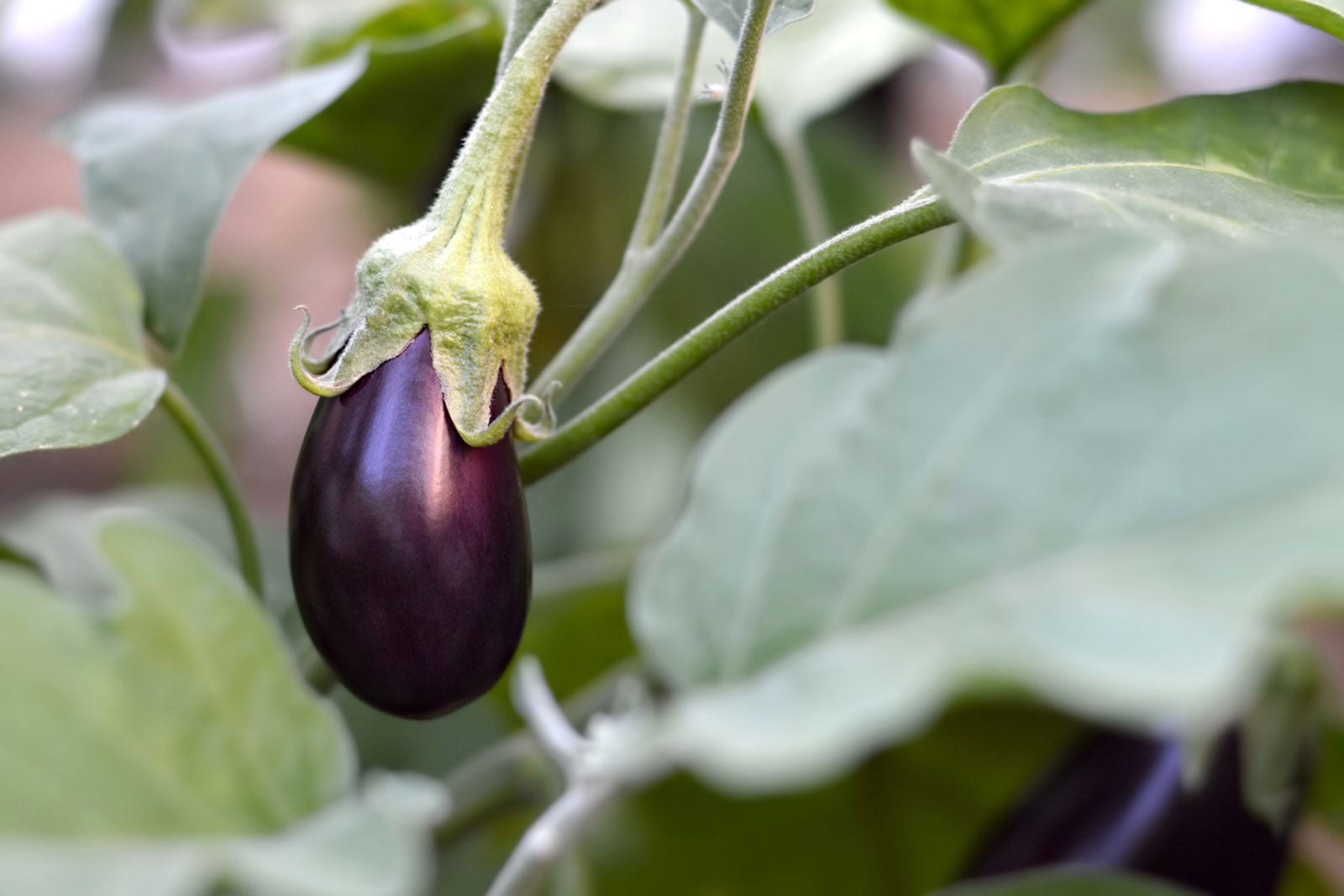Growing Eggplants: How To Plant Eggplant In The Garden


Sign up for the Gardening Know How newsletter today and receive a free copy of our e-book "How to Grow Delicious Tomatoes".
You are now subscribed
Your newsletter sign-up was successful
Growing eggplants in the veggie garden can be so rewarding when the time comes to harvest these tasty, versatile plants. There are several varieties to choose from with a range of sizes, shapes, and colors. By understanding what eggplants need to grow and thrive, you can ensure a good harvest.
How to Plant Eggplants
Like their close cousins, tomatoes, eggplants (Solanum melongena) are hot weather vegetables. They grow during short, hot seasons, so be aware of soil and air temperatures as you plan how and when to get eggplants started:
- If starting from seeds, make sure the soil is between 75- and 85-degrees Fahrenheit (24 to 30 Celsius). Use a heating mat if necessary. They’ll need these warm temperatures and two to three weeks to germinate.
- Start seeds in soil ¼ of an inch (0.6 cm.) deep. Thin seedlings so they are 2 to 3 inches (5 to 7.6 cm.) apart.
- Eggplant transplants can go out in the garden once temperatures stay reliably above 50 degrees F. (10 Celsius).
- Space transplants in the vegetable garden 18 inches (46 cm.) from each other and in rows that are 36 inches (91 cm.) apart.
Eggplant Care
Knowing where to plant eggplant is important. Make sure your transplants go in a spot in the garden where they will get full sun. The soil should be fertile and well-drained. Amend if necessary to make sure the plants will get enough nutrients and will not be in standing water.
Eggplants do best when the soil is consistent soil moisture. Water regularly, especially when the plants are young so that they develop deep roots. Avoid overhead watering to prevent disease, but consider using mulch to keep soil moist, warm, and to keep weeds down. Generally, eggplants should get an inch (2.5 cm.) of rain or watering per week.
When to Pick an Eggplant
You can wait until each eggplant is a mature size for its variety to harvest, but you can also pick those that are not fully mature. When smaller, the fruits will be tender in texture and flavor. Don’t let eggplants stay on the plant past maturity; they will not retain their quality.
To harvest eggplants, use shears or scissors. If you try to pull them off, you will most likely damage the plant, the fruit or both.
Eggplants don’t keep well. You can store them for about a week in the refrigerator. Pickling is possible, but other preservation methods don’t result in good quality. Eggplants are always best eaten fresh. For this reason, it makes sense to start picking the fruits when they are smaller and immature to extend the harvest period.
Sign up for the Gardening Know How newsletter today and receive a free copy of our e-book "How to Grow Delicious Tomatoes".

Mary Ellen Ellis has been gardening for over 20 years. With degrees in Chemistry and Biology, Mary Ellen's specialties are flowers, native plants, and herbs.